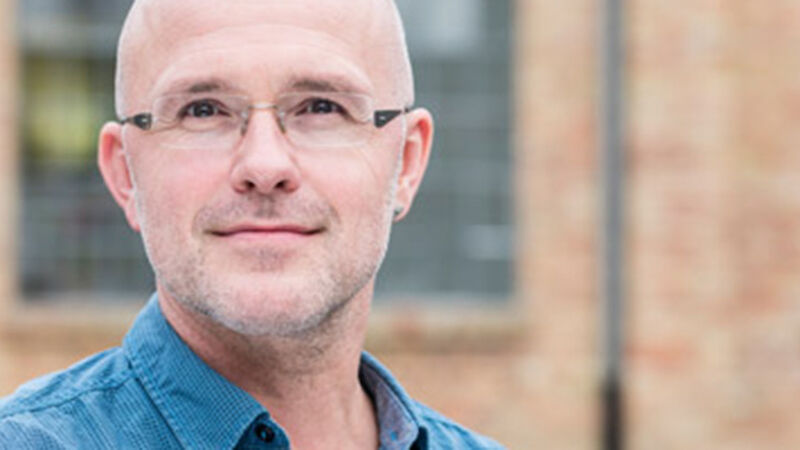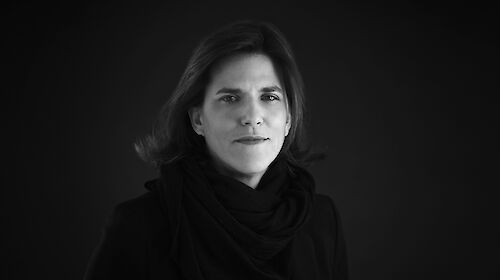“We need laboratory spaces to develop and test new formats”
GCB FutureTalks #13 with Tom Ritschel, coach, moderator and method developer
 © -
© -
Matthias Schultze spoke with Tom Ritschel about the changes and developments within the business events industry. Tom Ritschel works as a coach, moderator and method developer and has designed numerous interprofessional and transdisciplinary projects over the years.
Matthias Schultze: How has the current situation affected your work as a moderator and trainer?
Tom Ritschel: Out of a sudden, I have a lot of extra time. Instead of travelling to events or team meetings across the country all week long, I have spent my time in one place for almost six weeks now. My daily routine takes place between the screen, the park, the kitchen, and the children’s room with my child learning side by side with me at home. Within just two weeks, all of my scheduled events until August were cancelled. Certainly, this is an experience I would have gladly done without. There is a financial aspect to it, but moreover, I am saddened that all these great career opportunities with my wonderful partners have disappeared into thin air.
For many years I have supported countless organizations, not only within the MICE industry, in their transformation processes. Thus, I am familiar with the necessary strategies for crises and times of disruption. The close exchange with friends is particularly important during these times. My experiences have shown that a good mix of activities within a structured day as well as finding one’s inner balance with a lot of time in nature and making time for reflecting on one’s inner experiences are the most important foundations for finding one’s own stability in such confusing times. After overcoming a few inner resistances, I have started entering the digital world – or more precisely the hybrid world – and have incorporated parts of it into my business model.
Matthias Schultze: With which new ideas, solutions and initiatives are you facing the current crisis?
Tom Ritschel: Since my everyday life was already taking place in the VUCA world prior to the pandemic, I did not slip into great uncertainty. Instead I used my curiosity and started looking for new possibilities rather quickly. My days have become even more of a laboratory! This includes new experimental arrangements, new team compositions and new formats as well as periods of observation and reflection. It definitely is an intense learning process. This has also led to an even stronger cooperation with some of my colleagues.
Right at the beginning of the shutdown I launched an online café, where people from my extended network can meet. There is an open regular lunch for the solo self-employed and small businessmen and -women, which we use to find and give advice to each other. An inter-professional team, which has never collaborated in this way before, meets regularly as “digital format finders” and tests new methods for remote formats. On top of that, there are various remote workshops that I am looking to redesign. I am working on transferring some of the exciting and activating methods from my analog learning background for instance. At first, I was seeing more boundaries and limits, but I am happy to say that these spaces are constantly growing.
In fact, I am fascinated at how virtual spaces are constantly expanding by introducing analog aspects into the digital world, such as objects and tools, for example. The joy of experimentation based on my personal experiences and paired with theoretical principles from education, neuroscience and psychology are essential to this endeavor. We have started playing board games online, we are building virtual rooms in which we can realize almost all sociometric methods or we are sending around packages with ingredients to cook together online. The world is not only becoming more digital, but also a lot more hybrid.
Matthias Schultze: What do you think is most important for the event industry in the coming weeks and months?
Tom Ritschel: I believe that the industry only has one way of rising like a phoenix from the ashes soon: It has to innovate and find new ways. This does not mean that all activities should be transferred to the internet. Instead we need laboratory spaces, instruments for reflecting on the experiences caused by the crisis and we must make investments into the development and testing of new formats.
Furthermore, the entire path of customers and attendees at and around the events must be included in these change processes. This requires an expansion of the inter-professional cooperation. Future events will need new development and delivery structures. For instance, convention bureaus must be given more freedom to provide smarter support for customers. This will enable them to function as real dispatchers for customers as well as communication agencies which will ultimately improve the overall event quality. We must also work on creating more openness in terms of space and time for events. Instead of the prominent linear and thoroughly styled programs, events must offer programs that allow for simultaneity and focus on need orientation, for instance.
The focus of digitalization should primarily be put on improving customer communication and the organizer’s internal processes. However, without open discussions between event professionals, clients, and experts from the fields of communication, art, learning sciences and the professionals of the culture and creative industries, these innovations will not happen.
Matthias Schultze: What new event formats and networking opportunities do you see in the future?
Tom Ritschel: This question has been moving us independently of the COVID-19 pandemic. Nonetheless, the ongoing crisis has put the issue in the limelight and has created a dynamic which will most likely accelerate the development of a new event culture. In our opinion, future events must value human standards in a completely new way. In view of the current digitalization push, that sounds almost a bit old school. From our point of view, the fixation on technical advances and possibilities has always been one of the digitization’s dead ends, though. Technologies must be embedded in the event culture and should be used to accommodate the needs and possibilities of the event attendees.
Therefore, this new culture is looking rather hybrid as it entails digital communication in the run-up to events and offers new possibilities for future extension beyond the event itself. Events are becoming spaces of opportunity that are also more open and participatory. Simultaneity, freedom of choice, co-creation of the events’ programs and content, hospitality, play, experience orientation, enjoyment, intensification of relationships and ecological sustainability in all areas are key aspects of this new event culture.
Furthermore, future events will no longer stand on their own. They will be integrated into broader concepts that connect with each other like neural networks. One side effect is, for example, that more and more communities will form around such event concepts. Additionally, participants will grow a stronger connection with other participants and the organizers alike. Therefore, we are going to see an increasing number of small and medium-sized events in the future. However, they will be increasingly interrelated, they will complement each other, and they will enable a variety of experiences.
 ©
© ©
©